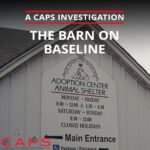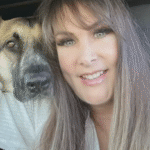
It’s been a few months since we last wrote about the USDA, but a lot has been happening—both behind the scenes and in public. This morning, CAPS President Deborah Howard submitted a detailed white paper to members of the House Committee on Oversight and Government Reform. That’s the congressional body responsible for overseeing the USDA. The white paper, which can be read here, spells out in shocking detail the ways in which the USDA has been failing to enforce the Animal Welfare Act at commercial dog and cat breeding and brokering facilities—also known as puppy and kitten mills.
In 2010, the USDA’s Office of Inspector General (OIG) released a scathing 69-page report criticizing the USDA’s breeder inspection program. This followed an audit and investigation prompted by a meeting between CAPS and OIG officials. We provided the OIG with compelling videos and reports from our undercover investigations of USDA-licensed breeders and brokers, detailing extreme levels of animal neglect.

The OIG’s subsequent report called for stronger enforcement of the Animal Welfare Act. However, the USDA has failed to comply with those recommendations. Instead, it has become more pro-industry: a response to the wave of pet shop regulations initiated by CAPS and other groups in many municipalities and states. The USDA has, unfortunately, decided to help breeders circumvent these new regulations.
It’s all part of the agency’s continuing effort to improve the reputation of commercial dog breeding. To do this, the USDA is working to increase the Animal Welfare Act compliance rate of its licensees. This way, at least on paper, their facilities appear more humane. But the USDA is accomplishing this goal not by bringing puppy mills into compliance with the Animal Welfare Act but by avoiding writing citations.
The result of this policy is that consumers are being deceived about the sources of commercially sold puppies. The USDA has become, in effect, a willing collaborator in perpetrating consumer fraud on the American public through the sale of sick puppies. The ways in which the USDA is doing this are many:
Online Inspection Database Removal
In February 2017, the USDA chose to shield from scrutiny those breeders who neglect and abuse their animals. The agency barred the public from viewing its online database of licensed dog and cat breeding facilities. The USDA also terminated public access to the inspection reports of those facilities. Without a database, the public cannot easily discover if a dog or cat breeder has been violating the Animal Welfare Act
Without access to the online database, concerned citizens are now forced to use Freedom of Information Act (FOIA) requests to obtain USDA inspection reports. This process can take many months, and the results are valueless: the USDA redacts all of the pertinent information.
USDA Bars the Public from Viewing Puppy Mill Inspection Database from CAPS on Vimeo.
CAPS recently requested inspection reports, photographs, and videos for Steve Kruse, a breeder with three facilities in Iowa that hold around 1,800 dogs and puppies. Kruse has been cited for dozens of serious veterinary care violations. He has also threatened USDA officials, attempting to prevent them from inspecting his mills. CAPS wanted to see if there had been any recent improvements (or deteriorations) at Kruse’s facilities. But the USDA, citing the Privacy Act, refused to release any photographs or videos from their inspections. They also redacted almost everything from the few inspection reports they agreed to send us.

In the past, all of this information would have been available to the public in the online inspection database. But now, the USDA has informed us that releasing these items might cause “embarrassment, harassment, or other stigmas” to the licensee. So apparently, according to the USDA, Kruse’s right to abuse animals in private outweighs the public’s interest in shedding light on his federally-licensed (and supposedly regulated) operation.
CAPS’ general council has formally appealed this decision by the USDA regarding Kruse’s inspection reports. We are also still partnered with the Animal Legal Defense Fund and are moving forward on our lawsuit against the USDA over the database removal. The opening brief in our appeal was recently filed.
Teachable Moments
In 2014, at a dog breeders meeting put on by the USDA, Western Regional Director Dr. Robert Gibbens announced the agency’s new “teachable moments” policy. CAPS Missouri Advisory Board Member Bob Baker was in attendance. At the meeting, Gibbens said that the USDA had instructed its inspectors to no longer cite breeders for “minor” non-compliances. Such documentation, he said, makes it difficult for breeders to sell their puppies and kittens to pet shops in regulated municipalities. If an inspector sees a minor non-compliant item, rather than citing it on an official inspection report, the inspector should now write it in his notes as a “teachable moment.”
When Mr. Baker, who is also executive director of Missouri Alliance for Animal Legislation, asked for the USDA’s definition of “minor,” and about how many minor violations would be ignored per facility and for how long, Dr. Gibbens admitted that the USDA had provided no guidance to its inspectors. Gibbens told the room of breeders that “if, at any time, a violation has the potential of affecting your business, please call our office immediately and let us know.” He emphasized that the USDA stood ready to enable breeders to market their dogs to pet shops. In other words, the USDA has prioritized the protection of its licensees over the protection of animals.
Third Party Inspections
In early 2018, the USDA proposed that third parties—such as the American Kennel Club (AKC) or other industry groups—begin performing inspections of dog and cat breeders, supplementing and/or replacing USDA inspections. This proposal, however, was met with outcry. Animal advocates opposed it for its obvious conflict of interest. But dog breeders, also, were against it—fearful that a future USDA administration might allow animal rights groups to inspect their facilities. Because of this latter objection, the USDA canceled the idea and is now considering another way to help breeders increase their Animal Welfare Act compliance rate: announced inspections.
Announced Inspections
The USDA recently started a “Pilot Project,” warning dog and cat breeders in advance of inspections. If these “announced inspections result in an increase in compliance during the Pilot Project,” the USDA plans to frequently utilize them. Unfortunately, such a Pilot Project is a sham.
Compliance rates will undoubtedly improve if breeders are warned in advance of inspections. CAPS believes that the USDA wants to schedule inspections beforehand so that an attending veterinarian can be present to correct certain healthcare violations immediately, allowing a citation to be avoided. Announced inspections will also give the mill operators a chance to clean up other violations before inspectors arrive. This will give the impression that the mill is in compliance with the Animal Welfare Act, even when it isn’t.
Self-Reporting
The USDA has also implemented a new policy of “self-reporting.” Under this policy, the USDA has agreed not to cite a breeder for any violations that he has previously documented himself. In other words, if a facility is filthy and dogs are living in giant piles of feces, the breeder will not be cited by the inspector as long as the breeder has written down beforehand that he knows his facility has non-compliant items and that he intends to remedy them.
Limited Inspections
In addition, the USDA has reversed a policy that had entitled its agents to inspect every animal and building on the premises of a breeding facility. The USDA will now only inspect those animals or areas that a breeder allows. This lets breeders keep the USDA from examining sick or injured dogs, as well as unsanitary or unsafe enclosures.
Revised Animal Welfare Inspection Guide
In May 2018, the USDA revised its “Animal Welfare Inspection Guide,” omitting key provisions. The agency deleted thirty-one pages of inspector guidelines for identifying animals in need. The criteria for when to confiscate suffering animals was also removed, and veterinary care requirements were downgraded.
The veterinary care changes, especially, are troubling. According to the revised guide: if an animal is in need of care, USDA inspectors should contact that facility’s attending veterinarian—with whom the facility usually has a mutually beneficial business arrangement—and make the veterinarian aware of the issue. As long as this is done, the inspector should not cite the breeder for a violation.
The new guide also enumerates multiple excuses that a breeding facility owner can choose from to avoid a scheduled or unscheduled inspection: doctor appointments, personal events, etc. In addition, puppy mill owners are now allowed to challenge and/or weaken the findings of a USDA inspection before the reports are finalized.
All of these changes protect USDA-licensed breeders; none protect those breeders’ animals.

How You Can Help
Please contact Secretary of Agriculture Sonny Perdue IMMEDIATELY and tell him that you believe all USDA inspections of commercial dog and cat breeders should be UNANNOUNCED and THOROUGH. Tell him that if the USDA truly wants to increase the compliance rate of its licensed breeders, the agency should start vigorously and effectively enforcing the Animal Welfare Act.
Mr. Sonny Perdue
Secretary
U.S. Department of Agriculture
1400 Independence Avenue, S.W.
Washington, DC 20250
(202) 720-3631
AgSec@usda.gov
Secretary Perdue needs to recognize that the USDA’s mission is not to help substandard dog breeders oppose and/or circumvent state and municipal laws. The only reason local governments have even had to get involved with the issue of puppy mills is because of the USDA’s failure to effectively enforce the Animal Welfare Act.
Please also contact the USDA’s Deputy Administrator of Animal Care, Bernadette Juarez. She is the person responsible for proposing the new Announced Inspections policy.
Ms. Bernadette Juarez
Deputy Administrator
USDA/APHIS/AC
4700 River Road, Unit 84
Riverdale, MD 20737-1234
(301) 851-2735
Bernadette.r.juarez@aphis.usda.gov
The evidence is clear: the USDA doesn’t properly enforce the Animal Welfare act at commercial breeding and brokering facilities for dogs and cats. This intentional negligence is a direct rejection of the OIG report from 2010, and it is part of a broader USDA policy to falsely inflate the reputation of commercial dog-and-cat breeding—at the expense of consumer awareness and animal welfare.
CAPS will be calling on the House Committee on Oversight and Government Reform to hold hearings on the USDA and its APHIS Animal Care inspection program. We will also be requesting that the Office of Inspector General for USDA conduct another audit and investigation of the USDA’s polices, programs, and enforcement protocols. Public scrutiny such as this is the only way to resolve the USDA’s troubling and persistent patterns of behavior.




